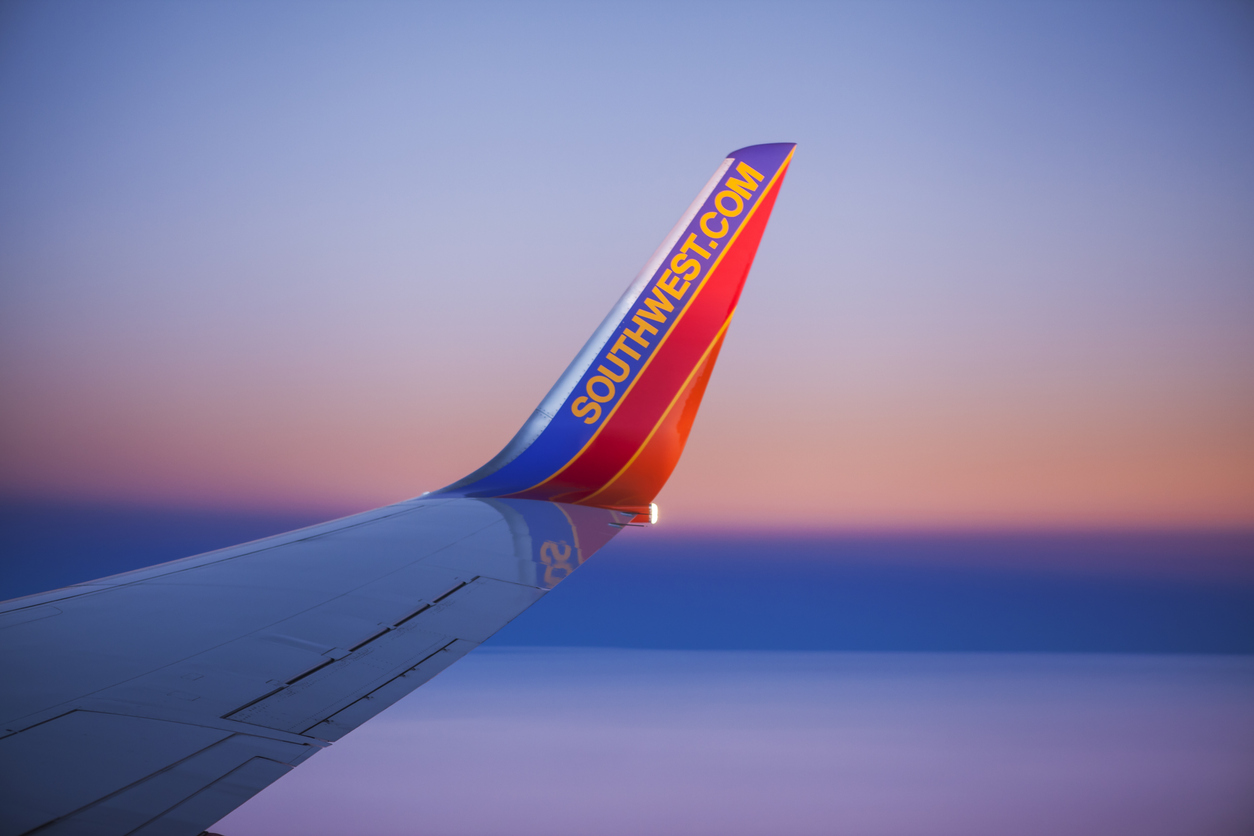Southwest Is Making Their Flights Safer but Even Without This Change You’re Still Much Better Off in a Plane Than a Car
Signing up for credit cards through partner links earns us a commission. Terms apply to the offers listed on this page. Here’s our full advertising policy: How we make money.
I’ve mentioned this before, but I am not my usual calm, best, sunny self when flying in a plane. That’s because I’m usually somewhere between mildly uncomfortable to extremely terrified when in flight. It’s a bit of a dilemma for a person who loves to travel. I know this fear is irrational. But…is it really? A plane goes down and that’s it. Lights out.
Sitting by the window helps. I like knowing I’ll be able to see what’s happening as we careen toward the ground. That moment the captain turns off the fasten seatbelt sign also helps. What doesn’t help is when someone says the thing that everyone likes to repeat when chatting with a person who has a fear of flying. “But you’re so much safer in a plane than in a car.” I know that’s true statistically. But…I can’t think of many car accidents that involve 150 people plunging into the ocean.
Ok, I’m done with the morbidity, promise!
Here’s something reassuring though – Southwest is investing in a safety device that will work to prevent the malfunction that caused the Lion Air crash in October of 2018. All of their planes will be outfitted with this device – what a relief. This is truly an airline that seems to care about their passengers, and they also have an exceptional loyalty program. Not only will you never pay checked bag fees, change fees, or cancellation fees, but you can earn a Southwest Companion Pass.
Once you have it, you can get nearly 2-for-1 flights (cash or points flights) for up to 2 years! And now is a great time to earn it because all 4 Southwest cards have increased sign-up bonuses.

In October, Lion Air, an airline that operates out of Indonesia, experienced a tragedy when one of their Boeing 737 MAX planes crashed shortly after take off. Just 13 minutes after departing, the plane’s sensors malfunctioned. Specifically, the control panel failed to display the correct altitude of the plane. Sensors on the plane respond automatically by pushing the plane’s nose down when the altitude is out of synch. This resulted in the plane diving into the ocean. Out of the 189 people onboard there were no survivors. Plane crashes are such an infrequent event. And it’s rare that you hear of stories like this, but when you do, they make an impact.
Here’s How Southwest is Making Their Fleet Safer
So how is Southwest working to make their fleet safer? In the aftermath of this accident, they are installing a new safety device in all of their Boeing 737 MAX planes. This device is called an Angle of Attack (AOA) indicator, and it prevents the exact problem that caused the pilots operating the Lion Air plane to crash. The AOA is a backup system that provides a cross-check whenever the sensors indicate the plane’s nose is pointed too high. Essentially, this system is designed to prevent the plane from stalling.
This is a relief for anyone who followed the Lion Air crash closely enough to understand that Southwest has the same planes in their fleet. Now they will be a bit safer.
Air Travel Is Safer Than Car Travel, Seriously!
While I’m admittedly a nervous flyer, someone who waits for the pilot to announce how long the flight time is before even thinking about relaxing, it does help to look at the statistics. All of the data points to the same conclusion – air travel is absolutely the safest way to travel. Here are a few things to remember that make me feel better:
- Pilots must go through years of training in order to gain a commercial license. Pilots are trained professionals who have a co-pilot sitting next to them for extra assurance. That’s who’s flying your plane. When you’re driving on the highway, you could be in a lane next to someone who got their license 3 months ago and is simultaneously texting their friends.
- Air traffic control has you covered. There’s a team of professionals who are watching the weather, the flight paths of other planes and keeping in constant communication with the flight team. Their whole purpose is to keep your flight safe. The closest thing you have in a car is Google maps or your passengers who may or may not be paying attention.
- As technology continues to improve, planes are continuously becoming safer. Airlines invest a lot of money in technology to make their aircraft safer. Take what Southwest is doing for example. These initiatives to improve airplane safety are as much financially motivated as they are benevolent. When you’re driving down the road, there’s no telling when the semi-truck next to you will have a tire blowout or swing into your lane causing a serious accident. You don’t have to worry about that when you’re in an airplane.
Do you think this additional safety measure will make a difference when you’re booking a flight? Honestly, this is going to make me even more of a loyal Southwest customer. Let me know what you think in the comments below!
To make sure you never miss valuable travels news and tips, sign up for our email newsletter!Editorial Note: We're the Million Mile Secrets team. And we're proud of our content, opinions and analysis, and of our reader's comments. These haven’t been reviewed, approved or endorsed by any of the airlines, hotels, or credit card issuers which we often write about. And that’s just how we like it! :)






Join the Discussion!